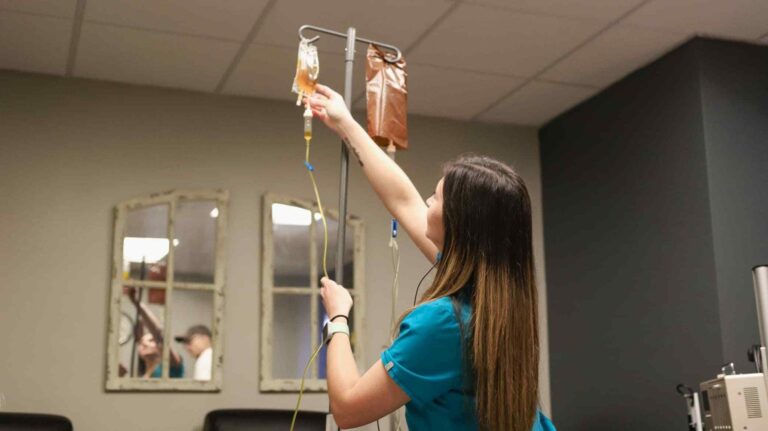The Benefits of a Residential Treatment Center for Addiction Recovery
Seeking treatment for addiction is a significant step on the journey to recovery. Residential treatment centers provide an immersive, supportive environment that is crucial for individuals who are struggling to overcome substance abuse. These centers specialize in delivering comprehensive care that addresses both the physical and psychological aspects of addiction. With a controlled setting and access to professional support, patients can focus entirely on recovery without the distractions or triggers of everyday life. Below, we explore the multifold benefits of residential treatment facilities, which play a vital role in nurturing long-term sobriety.
Understanding Residential Treatment Centers for Addiction Recovery
Residential treatment centers, or inpatient rehab facilities, offer individuals a focused, immersive environment for addiction recovery. These programs, which can last from a few weeks to several months, remove external distractions, allowing patients to fully engage in their treatment. Tailored plans often include individual counseling, group therapy, and holistic approaches, all designed to foster healing and equip individuals with the tools they need for long-term recovery.
For those seeking tranquility as part of their healing journey, a residential treatment center in Hawaii provides a serene setting. With scenic views and a peaceful atmosphere, these centers create the ideal environment for individuals to focus on their recovery, explore underlying issues, and build coping strategies to prevent relapse.
The Role of Structured Environment in Substance Abuse Treatment
Residential treatment centers provide a structured environment that promotes effective recovery by breaking the addiction cycle by replacing chaotic substance use patterns with healthy habits. This routine reinforces positive behaviors and decision-making, essential for maintaining sobriety. The safe confines of residential centers reduce the availability of addictive substances, reducing the chances of impulsive use.
Patients can focus on recovery-oriented activities and therapy sessions to build resilience against addiction. The therapeutic process in residential programs is purposeful, with a schedule filled with counseling sessions, group therapy, and educational workshops. This predictability and well-organized life provide a strong foundation for a sober, fulfilling life post-recovery.
Access to Professional Addiction Treatment and Therapy
Residential treatment centers are staffed by professionals specializing in addiction treatment, providing patients with 24/7 care. These professionals, including psychiatrists, psychologists, counselors, and therapists, use various therapeutic modalities such as cognitive behavioral therapy (CBT), dialectical behavior therapy (DBT), trauma-informed therapy, and motivational interviewing to address addiction and provide a comprehensive approach to recovery.
Medical care is also provided to manage withdrawal symptoms and co-existing health conditions, ensuring a manageable withdrawal period. The availability of diverse therapeutic approaches and medical services under one roof ensures personalized and integrated treatment, allowing patients to adapt their resources as their recovery journey evolves. This approach helps individuals recognize destructive thought patterns and learn healthier ways to cope with stress and emotional pain.
Building a Supportive Community in Residential Rehab
Residential treatment offers a profound benefit in creating a supportive community among patients. Living among peers who are experiencing similar challenges fosters camaraderie and mutual understanding, providing essential support for successful recovery. Group therapy sessions and shared activities allow patients to connect, practice social skills, and receive real-time feedback. The bonds formed in the treatment setting often continue after the program ends.
The strong support system extends beyond patients to staff and therapists, providing a sense of safety and trust. The community serves as the backbone of the residential treatment experience, reinforcing the individual’s commitment to recovery and reminding them they are not alone.
Long-term Success and Relapse Prevention Strategies in Residential Settings
Residential treatment centers prioritize relapse prevention strategies and aftercare planning to ensure long-term success. Patients learn to identify triggers and create coping mechanisms for real-world situations. Aftercare plans involve coordinating with community resources, establishing outpatient therapy, and considering sober living arrangements. Alumni programs and follow-up services reinforce recovery skills learned during treatment.
The focus on sustainable lifestyle changes, such as proper nutrition, exercise, sleep hygiene, and stress management, is crucial for overall well-being. These habits are better integrated into daily routines upon return home. The intensive care and comprehensive approach provide patients with the tools to navigate recovery and avoid relapse. The strategies learned in residential settings are adaptable to life’s ups and downs, highlighting the importance of long-term planning in treatment.
Altogether, residential treatment centers offer a transformative experience that empowers individuals in their fight against addiction. With the benefits of a structured and supportive environment, professional care at all hours, and a strong community, patients are equipped with the necessary tools for sustained recovery. The comprehensive approach taken by these centers can lay a robust foundation for a healthier, substance-free future.
Keep an eye for more news & updates on Well Known Figure!






